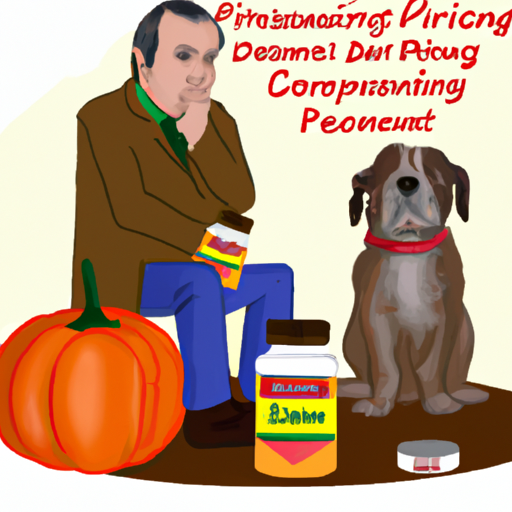As a loving and caring dog owner, you’re always sensitive to your pet’s wellbeing and happiness. When your canine companion seems out of sorts, you’re often the first to notice. One common issue that many dogs face is constipation.
Understanding Constipation in Dogs
Having a clear understanding of what constipation in dogs means will help you address it effectively. Constipation occurs when your dog has difficulty passing stool, or it does not defecate as frequently as it should. Just like in humans, this can lead to discomfort and distress.
Causes of Constipation
Constipation is often the result of dietary issues, lack of exercise, or dehydration. It can also be caused by:
- Hair ingestion from excessive grooming
- Ingestion of indigestible materials, like bones or toys
- Side effects from certain medications
- Age-related issues
Recognizing Constipation in Your Dog
Knowing how to recognize constipation in your dog is crucial for their health. Common signs include:
- Straining or discomfort during defecation
- Producing hard, dry stools
- Decreased appetite or lethargy
- Abdominal discomfort
If your dog exhibits these signs, it’s important to consult with a veterinarian. They can provide a proper diagnosis and recommend the best course of treatment.
Treating Constipation in Dogs
Effective treatment of constipation often involves dietary changes and increased physical activity. Here are a few things you can do:
-
Increase Fiber Intake: Dietary fiber can help alleviate constipation by adding bulk to the stool and promoting regular bowel movements. Foods rich in fiber include pumpkin, sweet potatoes, and bran. You can easily add these to your dog’s regular diet.
-
Ensure Hydration: Dehydration can lead to constipation. Make sure your dog has access to clean, fresh water at all times.
-
Regular Exercise: Regular physical activity can stimulate normal bowel function.
Preventing Constipation in Dogs
Prevention is always better than cure. Here are some steps you can take to prevent constipation:
- Ensure a balanced diet with adequate fiber
- Provide plenty of clean water
- Regular exercise and playtime
- Regular grooming to prevent hair ingestion
FAQ on Constipation in Dogs
This FAQ section will help you gain more insights into constipation in dogs.
What Can I Give My Dog If It’s Constipated?
There are several home remedies for canine constipation, including canned pumpkin, a fiber supplement, or adding more fiber-rich vegetables to their diet. However, if your dog’s constipation is severe or persists, contact your vet immediately.
How Long Can a Dog Go Without Pooping?
Most dogs defecate one to two times a day. However, some dogs may go a day or two without defecating and still be perfectly healthy. If your dog hasn’t pooped in more than two days, it’s best to consult with your vet.
Can I Give My Dog a Human Laxative?
Never give your dog human medication without consulting a vet. Some human laxatives can be dangerous or even deadly to dogs.
When Should I Be Worried About My Dog’s Constipation?
If your dog hasn’t had a bowel movement in over two days, or if they’re showing signs of discomfort, consult with your vet immediately.
Remember, your dog’s health and happiness are in your hands. You are their advocate and caregiver. By understanding and acting upon their health issues such as constipation, you can ensure their well-being for years to come.



